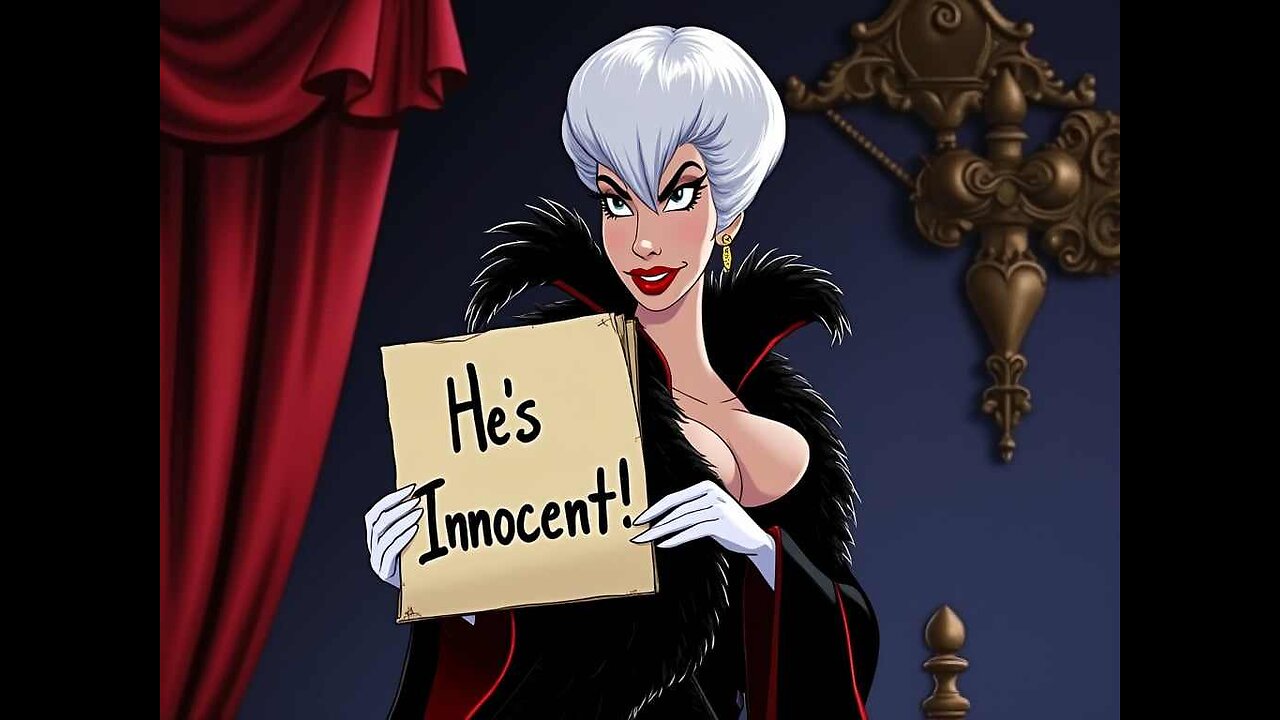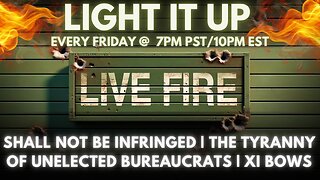Premium Only Content

Defending the Silent.
The Ethics of Standing Up for Those Who Don’t Defend Themselves.
In our modern world, where public discourse often takes place online and accusations can spread like wildfire, the concept of defending someone who chooses not to defend themselves in the public domain raises some intriguing ethical questions. Particularly, when a person accused of the most heinous crimes—those that can irreparably damage their reputation, livelihood, social standing, and even their freedom—remains silent, it can be perplexing for observers and deeply frustrating for accusers. But what about those who step in to defend such individuals without ever having met them? What drives this kind of action, and what are the implications?
The Nature of Accusations in the Digital Age.
Today, accusations don’t just remain local gossip; they go viral. When someone is accused of a horrific crime, be it fraud, abuse, or worse (murder), the public often expects a swift and strong defense. To remain silent is to leave a vacuum—one that many take as a tacit admission of guilt. In such cases, when the accused chooses not to defend themselves, people often wonder why.
Is it because they’re guilty and they fear the exposure of further evidence? Or is it because the justice system, not the court of public opinion, is where they believe their innocence will be proven? Maybe, they simply do not want to engage in the spectacle that modern media often makes of such accusations.
The Role of the Defender.
Enter those who, despite having no personal connection to the accused, take up their defense. This phenomenon is not new—people have long advocated for causes and individuals they feel are being unjustly treated—but in today's digital age, these defenders have unprecedented platforms to make their case.
One key reason individuals defend the silent is a deep-seated belief in fairness and due process. For them, the presumption of innocence is sacred, and until proven guilty in a court of law, no one deserves to be condemned by public opinion. These defenders see themselves as upholders of justice, ensuring that a person’s reputation isn’t shredded on the altar of media sensationalism.
The Complexity of Trust.
But there’s another layer of complexity here: trust. When defenders who have never met the accused rally to their cause, it begs the question of what they trust more—the evidence (or lack thereof) or their principles about how society should respond to accusations.
It’s possible that they trust the system so much that they believe any unfair prosecution or accusation will inevitably be righted. Or perhaps they trust their instincts, intuition, or even certain conspiracy theories that paint the accused as victims of a smear campaign. In some cases, defenders may have experienced false accusations themselves and feel a personal connection to the situation.
The Risks and Rewards of Defending the Silent.
Defending someone who chooses not to defend themselves is risky, particularly when the accusations are of the most heinous kind. If it turns out the accused is guilty, the defenders risk their own reputations and credibility. But if the accused is later exonerated, those who defended them may be vindicated and celebrated for standing on the right side of history.
But beyond reputational risks, there are also moral and emotional dimensions to consider. Defending someone without knowing the full story can put immense strain on the defender, particularly if they are criticized or ostracized by others. Yet for some, the pursuit of what they see as justice outweighs any personal cost.
A Quiet Defense: Why Some Choose Silence.
On the flip side, the choice not to defend oneself publicly can be strategic. For some, the court of public opinion is a battlefield they are unwilling or unable to fight on, especially when legal battles are already underway. Public defenses often become mudslinging contests, with little regard for truth, justice, or dignity. By staying silent, some may believe they are preserving their integrity, refusing to engage in what they see as a futile or harmful spectacle.
Additionally, in certain cases, the legal system may advise silence to avoid inadvertently incriminating oneself or to preserve the integrity of the case. Legal battles require precision, and public debates rarely provide that.
In Conclusion: The Ethics of the Silent Defense.
Ultimately, defending someone who doesn’t speak for themselves is a noble but complicated act. It’s an expression of faith in fairness, due process, and sometimes the human capacity for misunderstanding. But it also carries significant risk, particularly when the nature of the accusations is so severe. Those who choose to defend the silent often believe in a higher principle—one that transcends the details of any single case.
They defend not just an individual, but a system, a belief in justice, and perhaps most importantly, the idea that public condemnation should not replace careful consideration. Whether these defenders are right or wrong in any given case, they stand as a reminder that silence doesn’t always mean guilt—and sometimes, the loudest voices are not the ones we should heed.
-
 LIVE
LIVE
Anvilight
2 hours agoFortnite | Saturday Morning Solos! | Creator Program Day #26
325 watching -
 2:06:07
2:06:07
TimcastIRL
12 hours agoDemocrats LOSE IT Over SECOND Liberal Judge ARRESTED By Trump Admin | Timcast IRL
224K221 -
 1:26:16
1:26:16
Man in America
1 day agoEXPOSED: Trump's COVERT War Against the European Banking Cartel w/ Tom Luongo
116K52 -
 1:45:48
1:45:48
Glenn Greenwald
16 hours agoGlenn Reacts to News of the Week; Plus: Audience Q&A | SYSTEM UPDATE #443
121K88 -
 11:05:38
11:05:38
Dr Disrespect
21 hours ago🔴LIVE - DR DISRESPECT - PUBG - 5 CHICKEN DINNERS CHALLENGE
246K22 -
 3:23:12
3:23:12
I_Came_With_Fire_Podcast
20 hours agoSHALL NOT BE INFRINGED| THE TYRANNY OF UNELECTED BUREAUCRATS | XI BOWS
62.4K9 -
 4:19:36
4:19:36
SynthTrax & DJ Cheezus Livestreams
22 hours agoFriday Night Synthwave 80s 90s Electronica and more DJ MIX Livestream THE GREAT EDO WARS OF 2067 Edition
99.3K10 -
 4:45:15
4:45:15
RalliedLIVE
12 hours ago $1.98 earnedWarzone Domination w/ Ral
70.2K1 -
 1:10:17
1:10:17
Sarah Westall
14 hours agoWorld Leaders Increasingly Display Panic Behavior as Economic Change Accelerates w/ Andy Schectman
110K25 -
 59:54
59:54
Motherland Casino
11 hours ago $2.50 earnedScar x Ayanna
46.6K9